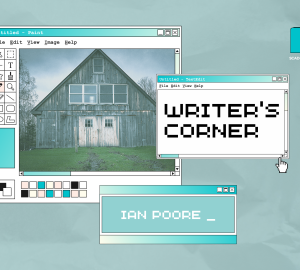
Thanks to book clubs filled with bored housewives, the “Fifty Shades of Grey” books by E. L. James have become a staple in pop culture today. In fact, the trilogy was so successful that it was adapted for the big screen, due out February 2015. What some people might not know, however, is that “Fifty Shades of Grey” started out as “Twilight” fan fiction and was originally published online for free. It looks like E.L. James may have paved the way for a new means of gaining literary fame. Fangirl Anna Todd also received a book deal for her fan fiction series “After,” which is centered around Harry Styles, a member of the popular boy band “One Direction.”
When I first heard the news that yet another fan fiction writer was getting a book deal, I was appalled (or perhaps “jealous” would be more appropriate). There’s a myriad of talented, unknown writers out there and the recognition is going to people writing about whatever pop culture figure they’re most obsessed with? Initially I was concerned about the future of literature everywhere, but third-year writing major Jarrod Fouts said something on the topic that made me feel the need to reevaluate my opinion: “I would judge them more harshly but they have book deals and I don’t.”
While plenty of art forms borrow from each other, writing seems to be the only one that gets flack for it. Nicki Minaj received no backlash for sampling Sir Mix A Lot’s “Baby Got Back” in her new hit “Anaconda” and illustrators are commonly praised for their renditions of famous characters. If other artists are free to use whatever inspiration they please, why should writing be an exception?
One problem I’ve personally had with fan fiction is the lack of originality, but when I took a closer look at it I found that argument doesn’t quite hold up. There’s a subsection of fan fiction called “AU,” short for “Alternate Universe,” in which the characters are in radically different settings or worlds from their original storyline. Sometimes the characters themselves are radically different. For example, the vampire-centric show “True Blood” has inspired countless fan fiction stories, some of which imagine the characters in a world without vampires and otherworldly creatures, thus changing the characters’ natures entirely.
Once you’ve changed enough details, doesn’t a story become its own? In “Fifty Shades of Grey,” Bella became Anastasia and Edward became Christian. If you can simply change the names of characters and have the storyline be virtually unrecognizable from the one that inspired it, is the story still not an original? Perhaps we should release stories from the stigma of what they started out as and start enjoying them for what they have become. Who knows, they might turn out to be even better than the inspiration.






















